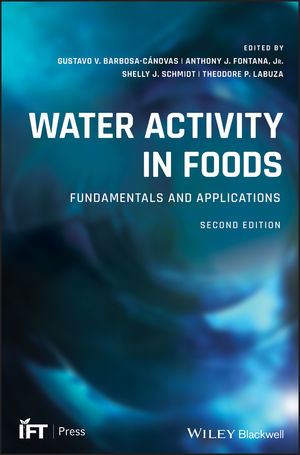Hot (topic) in cold
Frozen food processors learning to control, combat Listeria.

 Editor’s note: The American Frozen Food Institute (AFFI) will host an April workshop about Listeria monocytogenes in frozen food plants. Refrigerated & Frozen Foods briefly examines the subject with Dr. Donna Garren, AFFI vice president of regulatory and technical affairs; and John Allan, AFFI's director of regulatory and international affairs.
Editor’s note: The American Frozen Food Institute (AFFI) will host an April workshop about Listeria monocytogenes in frozen food plants. Refrigerated & Frozen Foods briefly examines the subject with Dr. Donna Garren, AFFI vice president of regulatory and technical affairs; and John Allan, AFFI's director of regulatory and international affairs.
R&FF: Let’s look back for a moment. What was last year’s most important news or development involving Listeria monocytogenes (Lm)?
Garren & Allan: Of course, the cantaloupe outbreak stands out as the biggest news maker. This outbreak highlights the fact that Lm is the deadliest of all food-borne organisms, in terms of percentage of deaths resulting from infection. We expect the entire food industry will learn some critically important lessons coming away from this extremely unfortunate and rare event.
 R&FF: Why do you say, “rare?”
R&FF: Why do you say, “rare?”
Garren & Allan: Historically, outbreaks of Lm-related illnesses have not been associated with raw produce. Traditionally, Listeriosis has been a bigger issue with such ready-to-eat foods as deli or pre-sliced luncheon meats, soft-ripened cheeses and other processed or refrigerated foods. These are instances where contamination may occur during food production, with subsequent product storage − prior to consumption − that allows bacteria to reach levels high enough to cause infection when consumed by susceptible individuals.
Very rarely have illnesses been linked to these products in frozen form. This is likely due to the fact that freezing prevents Lm organism growth – if it is present in a final product – and many frozen foods are cooked to some degree by the consumer or food handler prior to consumption. That cooking further reduces risk.
 R&FF: What points did you emphasize during last year’s food safety workshop?
R&FF: What points did you emphasize during last year’s food safety workshop?
Garren & Allan: The main impetus of our Lm workshops is to educate frozen food producers on the need and means to control these bacteria in production facilities. We’re focusing mostly on products that may not be fully cooked by consumers, or are likely to be eaten directly from a frozen or thawed state. Interest continues to grow from various sectors of the frozen industry, with attendance at our May 2011 workshop reaching a record level.
R&FF: What can you say about this year’s seminar?
Garren & Allan: We will expand the scope of the 2012 workshop (open to non-AFFI members), which will be held April 25-26 in St. Louis. It was an easy decision thanks to feedback from past Lm workshop participants and an increasing awareness of other possible pathogens that may be found in food production environments.
R&FF: Looking ahead, how can frozen food processors most improve food safety effectiveness?
Garren & Allan: We believe an aggressive environmental monitoring program is perhaps the best defense for preventing pathogens such as Lm and Salmonella from entering the product stream. A good program would aggressively seek out potential and real problem areas. Then operators should implement measures (thorough cleaning and sanitation, redesign/reconfiguration of equipment, etc.) to eliminate – or reduce as much as possible – the potential that those areas could harbor pathogens and eventually lead to product contamination.
For more information about the American Frozen Food Institute’s food safety services, programs or expertise, contact Dr. Donna Garren at dgarren@affi.com; John Allan at jallan@affi.com; or visit www.affi.org.


R&FF: Let’s look back for a moment. What was last year’s most important news or development involving Listeria monocytogenes (Lm)?
Garren & Allan: Of course, the cantaloupe outbreak stands out as the biggest news maker. This outbreak highlights the fact that Lm is the deadliest of all food-borne organisms, in terms of percentage of deaths resulting from infection. We expect the entire food industry will learn some critically important lessons coming away from this extremely unfortunate and rare event.

Garren & Allan: Historically, outbreaks of Lm-related illnesses have not been associated with raw produce. Traditionally, Listeriosis has been a bigger issue with such ready-to-eat foods as deli or pre-sliced luncheon meats, soft-ripened cheeses and other processed or refrigerated foods. These are instances where contamination may occur during food production, with subsequent product storage − prior to consumption − that allows bacteria to reach levels high enough to cause infection when consumed by susceptible individuals.
Very rarely have illnesses been linked to these products in frozen form. This is likely due to the fact that freezing prevents Lm organism growth – if it is present in a final product – and many frozen foods are cooked to some degree by the consumer or food handler prior to consumption. That cooking further reduces risk.

Garren & Allan: The main impetus of our Lm workshops is to educate frozen food producers on the need and means to control these bacteria in production facilities. We’re focusing mostly on products that may not be fully cooked by consumers, or are likely to be eaten directly from a frozen or thawed state. Interest continues to grow from various sectors of the frozen industry, with attendance at our May 2011 workshop reaching a record level.
R&FF: What can you say about this year’s seminar?
Garren & Allan: We will expand the scope of the 2012 workshop (open to non-AFFI members), which will be held April 25-26 in St. Louis. It was an easy decision thanks to feedback from past Lm workshop participants and an increasing awareness of other possible pathogens that may be found in food production environments.
R&FF: Looking ahead, how can frozen food processors most improve food safety effectiveness?
Garren & Allan: We believe an aggressive environmental monitoring program is perhaps the best defense for preventing pathogens such as Lm and Salmonella from entering the product stream. A good program would aggressively seek out potential and real problem areas. Then operators should implement measures (thorough cleaning and sanitation, redesign/reconfiguration of equipment, etc.) to eliminate – or reduce as much as possible – the potential that those areas could harbor pathogens and eventually lead to product contamination.
For more information about the American Frozen Food Institute’s food safety services, programs or expertise, contact Dr. Donna Garren at dgarren@affi.com; John Allan at jallan@affi.com; or visit www.affi.org.
Looking for a reprint of this article?
From high-res PDFs to custom plaques, order your copy today!






